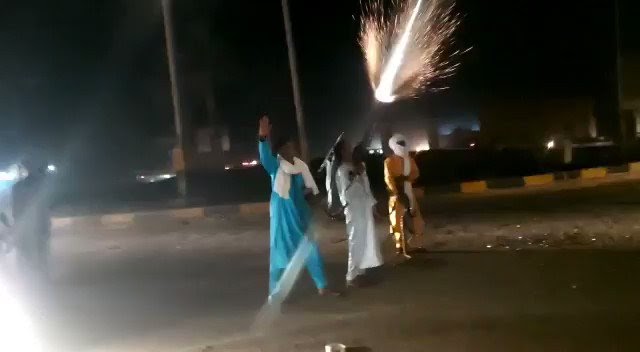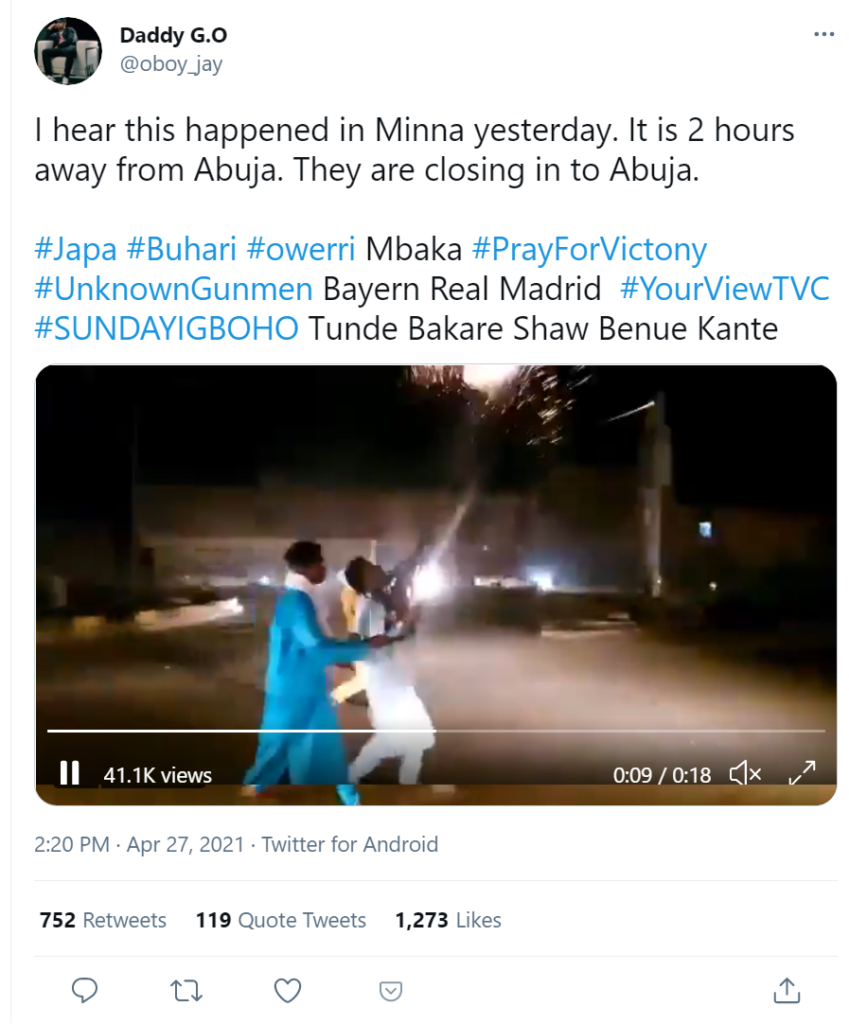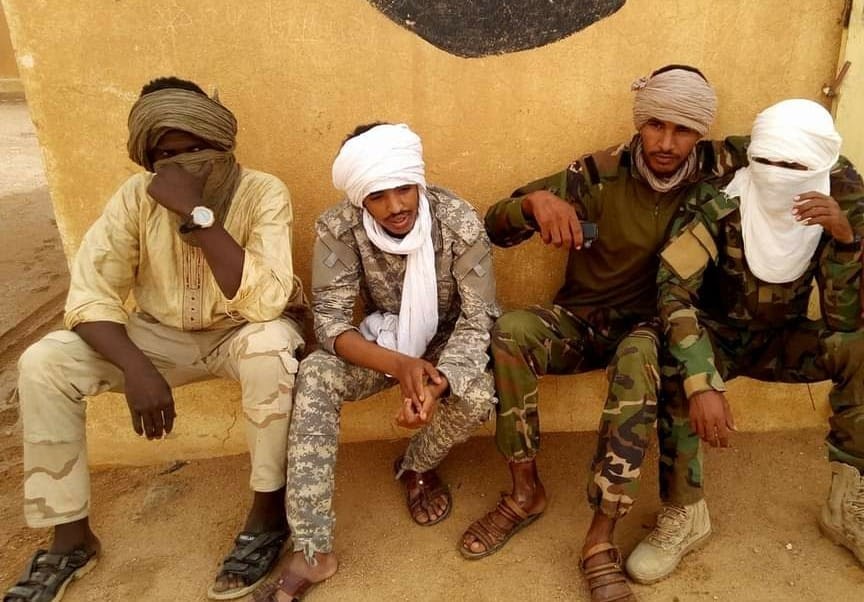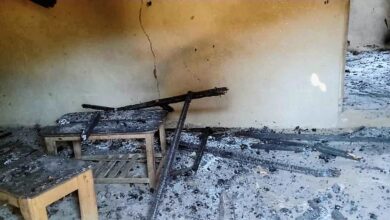Factcheck: Video Of Rapid Gunfire Not Filmed During Boko Haram Invasion Of Niger State
Available evidence places the video in Algeria in 2020. It was not shot during the recent Boko Haram attack of a community in North-central Nigeria.

An 18-seconds-long video has been making the rounds on Nigerian social media, purportedly showing young men in the country firing machine guns and a rocket-propelled grenade (RPG) into the air and shouting Allahu Akbar (Allah is the greatest).
But checks show the video is not recent and it originated from another part of the world.
One Twitter user, Daddy G.O (@oboy_jay), shared it on Tuesday, April afternoon, saying he heard “this happened in Minna yesterday. It is 2 hours away from Abuja. They are closing into Abuja.” As of 7 a.m. WAT on Wednesday, April 28, the tweet had been liked by over 1,200 people and shared over 870 times.
The armed youths in the video, which has also been widely shared on WhatsApp, wore brightly coloured long kaftans and some of them also had white turbans partly covering their faces.
Boko Haram insurgents had reportedly seized control of Kaure, a community in Niger State, North-central Nigeria, leading to the displacement of thousands of people.
“Sambisa is several kilometers from Abuja but Kaure is less than two hours drive from Abuja. So nobody is safe anymore, not even those in Abuja,” Abubakar Sani Bello, Governor of Niger State said on Monday following the attacks by the insurgents and reported hoisting of their flags.
This tragic development is what has caused the video to be circulated in a misleading context.
Meanwhile, other tweets shared earlier or on the same day suggested that the video was shot in Owerri, Imo State, southeast Nigeria.
“Owerri hot. Unknown gunmen shooting carelessly,” Chiagoziem Obinna (@alpha_emny) wrote on Monday, also attaching the clip. His post was liked by 276 people and shared over 170 times as of Wednesday morning.
Where are the armed men from?
HumAngle extracted keyframes from the video using the analytical tool, InVid, and ran a reverse image search on the pictures on Yandex.
One of the results is linked to a Dec. 30, 2020, post on Bursalagulagu, an Indonesian blog for music downloads. The audio file, 21 seconds long, contains the same sounds of gunshots heard in the video shared on Twitter, and the post’s featured image is a screenshot from the video. Though the website appears to have been registered in Reykjavik, Iceland, its language is mainly Indonesian — spoken in Indonesia, a country with at least 88 per cent Muslim population.
Another reverse image search on Google led to a post on TikTok, a video-sharing social networking service. It contains the same video shared on an earlier date, Aug. 12, 2020.
The video was posted by Zyd Targi (user634858003), whose display picture is of a young man in military fatigue. A Google search of the name led to a Facebook account using the name and having pictures of a man with similar features who is also a military officer. White turbans worn to cover the face are also visible in some of his uploads.
Targi’s profile additionally shows that he is from Khelil, Algeria.
The way the young shooters are dressed in the video being circulated does not bear semblance with the typical dressing of terrorists in the region. Such kaftans are worn casually and for special occasions by civilians and the turbans are a common clothing accessory in Algeria and other Muslim countries.
Celebratory gunshots where guests fire numerous rounds of ammo into the sky are not uncommon at weddings in Arab countries, including Algeria.
“The problem has reached such an extent that religious authorities in countries like Iraq and Lebanon have had to issue fatwas prohibiting the practice and detailing its harms,” wrote The New Arab in 2015.
There are numerous videos on the internet that show similar celebratory gunfire by civilians in Algeria and other Arab countries such as Saudi Arabia.
Verdict
It is certain that the video predates the recent Boko Haram invasion of the community in Niger State, Nigeria, or armed violence in Imo State this year.
Also, publicly available evidence hints that it was shot in Algeria, a North African country, by people engaging in celebratory gunfire, and not terrorists.
Support Our Journalism
There are millions of ordinary people affected by conflict in Africa whose stories are missing in the mainstream media. HumAngle is determined to tell those challenging and under-reported stories, hoping that the people impacted by these conflicts will find the safety and security they deserve.
To ensure that we continue to provide public service coverage, we have a small favour to ask you. We want you to be part of our journalistic endeavour by contributing a token to us.
Your donation will further promote a robust, free, and independent media.
Donate Here






